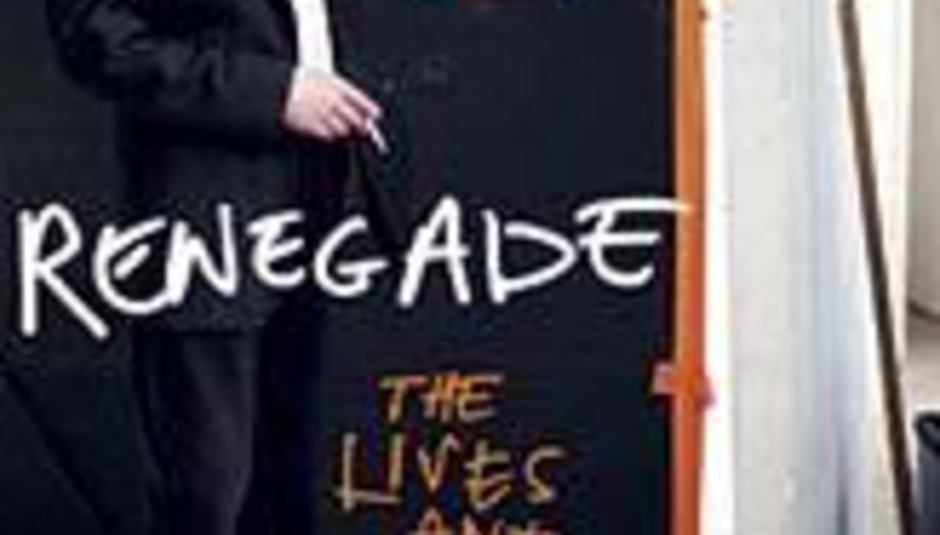Years ago, some of us went to a reading of literary crossover hit, The Corrections, by Jonathan Franzen. During the Q&A, this girl we recognized asked what books he (Franzen) was inspired by, and would recommend, pen & notepad at the ready. Franzen’s answer: “The Narnia books”. (The girl was Zadie Smith.) For any Fall-fans... this book may be one big “Narnia”.
Older Fall-fans might be into psycho-geography, Pere Ubu, Wire, Moondog, anarcho-syndicalism, whatever - and the younger ones might be into Pavement and GBV - but you wouldn’t expect many of them (old or young) to be comfortable admitting to liking TV quite as much as Mark E Smith. You might not expect Smith’s opinion on Kurt Cobain... but you have to wonder about his judgment when he uses his autobiography to give you his opinion on the Gus Van Sant film, Last Days. And so on.
Cantankerousness, you’d expect of any legend-in-their-lifetime figure from Dylan to Waits. Still, Smith’s the last cult-hero you’d expect to spend so much time correcting other people’s accounts of him... or even caring. That’s what the first chapter does, automatically assuming that the reader will have pored over the most recent accounts of life in The Fall, or the afterlives of the ex-members, and laying into them directly. Only after that (heart-sinking) introduction do we get a light, stream-of-consciousness history of The Fall that’s frequently funny, rarely dull, but sometimes seems shallow. This is Smith at his most astute:
On Punk: “To me, punk was a safety net for a lot of people, a refuge of sorts from the reality that was 70s Britain... something the kids could fall into, and out of when it all got a bit too complicated and harsh, and for the older generation, instead of concentrating their minds on the undeniable mess of the State, it provided them with an almost manageable problem…It became very conservative – with everybody dressing the same and avoiding those that didn’t. Small wonder that they soon ran out of things to say.” (p.41)
...and Its Self-Importance: “Belting out naïve generalizations in front of this backdrop that went from the Yorkshire Ripper to pictures of kids being coshed. It was like watching the news in your living room, with The Clash playing in the corner.” (p.93)
One thing that Smith maintains about The Fall (and himself) comes across as resoundingly true – he doesn’t care for posterity, and he’s mostly interested in documenting the present. 60% of the cultural references here are to primetime television, which means that his relationships to fictitious middlebrow characters often appear more complex and involved than those with most of the band’s former members. Nonetheless, he feels the need to tell us he’s above reality-TV, and celebrity culture:
On Celebrity Cuture: “I remember when Through the Keyhole was the only outlet for all this heightened prying. David Frost and Loyd Grossman – they’re the culprits. And Madonna. She was the first to make the private a public free-for-all.” (p.51; in a chapter called “The Group and their Useless Lives”)
Much of the time, Smith’s a bloke down the pub telling you what he saw last night, and how it’s all a sign we’re going to Hell in a handcart... and, indeed, what his other mates-down-the-pub get up to, amiable rogues the lot of them. The other 30% of references are to a small selection of popular entertainers who managed to pre-date the present age of rabid self-consciousness and second-guessing audience expectations; that final 10% is made up of the science-fiction (or, properly, “weird fiction”) of Lovecraft, Machen & co, who made the inner city seem so Hellish, and inspired Mark’s own goblins. Here at least, some Fall-fans (and Frances May Morgan) will be relieved to read Smith:
On Weird Fiction & Psycho-Geography: "[Machen] lives in this alternative world: the real occult’s not in Egypt, but in the pubs of the East End and the stinking boats of the Thames – on your doorstep basically. I know what he means.” (p.78)
For every moment you want to applaud, there’s another you cringe at, with no big surprises and a fair amount of agreeable home truths in between. One of Smith’s more pointed anecdotes – of the kerjillion – concerns George Best, who he met in a TV-studio. The pair of them shared a pint or several (of course), before Best went on air to tell his harrowing tale of addiction... and sobriety, with crocodile tears. Best had told Smith (“with a wink”) that this is how you play the game. Thankfully, Smith shows more integrity, but you have to wonder what he’s holding back. All in all, this an entertaining read for Fall-fans devout and casual alike, but potentially bubble-bursting, and more of a (sobering) revelation about the bathos of the struggling artist. Denouncing the "Weekend Socialism" of his record company, Smith gets the last word:
“I hope this book turns out like Mein Kampf for the Hollyoaks generation.” (p.122)
(7 / 10)






















